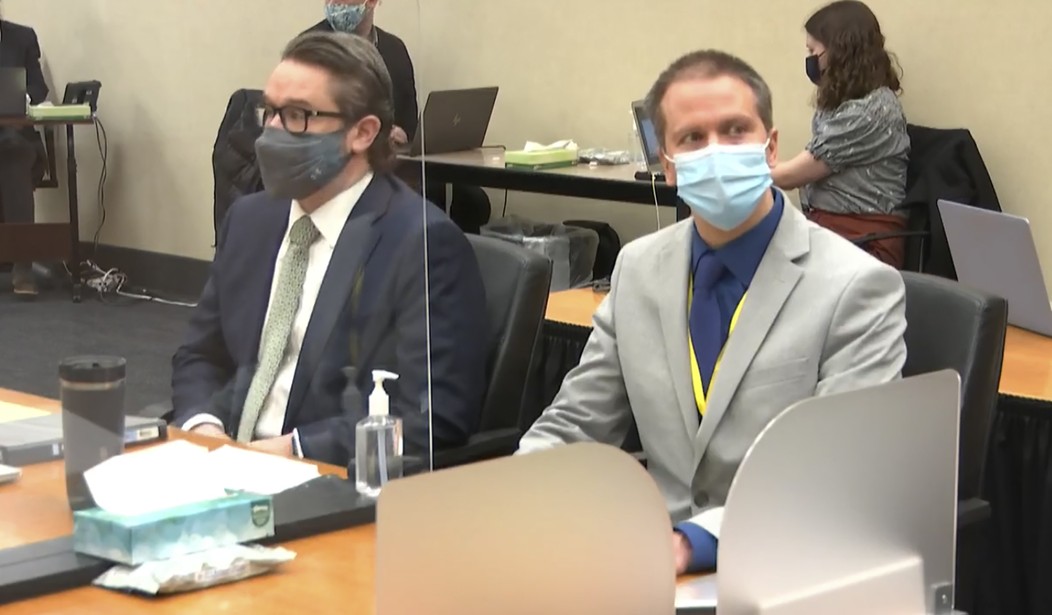I spent an entire talk show Tuesday morning telling the audience why I found reasonable doubt dripping from multiple layers of the case against Derek Chauvin. A unanimous jury verdict to the contrary does not change my mind in the least.
However, I am now tasked with how to process this result as relief and celebration spread across the land, amid talk of healing and renewed faith in our system among those who had grown distrustful. Who wants to ruin that vibe?
So I’ll pivot to a position I have often instructed others to follow, showing respect to jurors who saw every moment of evidence, granting them benefit of the doubt for acting in a good-faith dispatch of their duties.
My perception of reasonable doubt, however, was not some snap judgment. It did not stem from my whiteness, my conservatism or my consistent support of police. It came from my eyes and ears, focused on every day of testimony. I am well familiar with the state’s case, and the defense’s assertions. The infamous video is indeed damning, and the defendant is not exactly sympathetic as a result.
But in navigating the actual Minnesota statutes defining the charges against Chauvin, I found multiple judgment calls that fell short of the burden of proof. The second-degree murder charge required the restraint of George Floyd to be an actual criminal assault; third-degree murder requires a “depraved mind” and lack of “regard for human life.” Even the least of the charges, second-degree manslaughter, requires taking “unreasonable risk” and “consciously” taking a chance of causing death or bodily harm.
Recommended
I won’t relitigate the countless instances of suspects detained while prone, with varying levels of restraining pressure, who somehow manage to survive the experience. That invites the speculative matter of the drugs in George Floyd’s system, and how much they contributed to the vigorousness of his resistance to arrest, or to any physical vulnerability that contributed to his death.
I don’t pretend to know that the drugs did him in, and that’s my exact point. How does anyone know, again beyond reasonable doubt, that they did not? We would have to re-rack time, make George Floyd drug-free for the exact same nine and a half minutes, and see if he survived. Since that is impossible, all we have is speculation, even when it comes from people with medical degrees. That speculation can be well-informed and devoutly sincere, but does it extend beyond reasonable doubt?
For me, it does not. For twelve jurors, it did.
So do I know this was a travesty of justice, along the lines of the O.J. Simpson acquittal? I do not. Jurors are asked to weigh in on matters both objective and subjective. The Chauvin case asked them to pass judgment on a number of factors where reasonable people might differ. As it happens, they found harmony on a decision to find him guilty of all charges. And they did it briskly.
Does that inspire confidence in their deliberative depth? The world knows America’s streets would have exploded with rage had they found differently. I have no specific reason to believe they were prodded to a hasty conviction by the slant of media coverage or the intimidation of Rep. Maxine Waters, called out by name in a deserved scolding from Judge Peter Cahill.
But the judge did indicate that her incitements could well bolster an appeal, and that will not be the only factor. The jury’s speed and unfettered certainty, so embraced by those yearning for a conviction, may inform an appellate assertion that the jury was moved by more than evidence.
Noting the recent discussions about the corruptive effect of events outside the courthouse, prosecutor and Fox analyst Andy McCarthy said after the verdict: “The best way to show that the jury was not bamboozled into convicting would have been if deliberations had gone on for a few days, if they maybe acquitted on a count, if they made a record where you could say they made a discriminating appraisal of the evidence.”
Conversely, he added, “The best way for [Derek Chauvin] to show that he might not have gotten due process is a quick verdict with no notes where they just convicted on everything. And that’s what happened.”
McCarthy does not expect a successful appeal, and neither do I. No matter the verdict, this was a reminder that jurors are human, bringing their differing perspectives into a deliberation. Throughout all of our lives, we will absorb verdicts we agree with and those we do not. Had they acquitted Chauvin, it is not only the rioters who would have wondered what they were thinking. Millions of Americans would have earnestly harbored such thoughts, without taking to the streets.
So this time, it is my turn to defer to a jury I disagree with, and it will not be the last time. No one ever guaranteed me a lifetime of verdicts I approve of. As an American, I am guaranteed a justice system that works. I am willing to believe that it does work, even if my preferred side does not always prevail.

























Join the conversation as a VIP Member